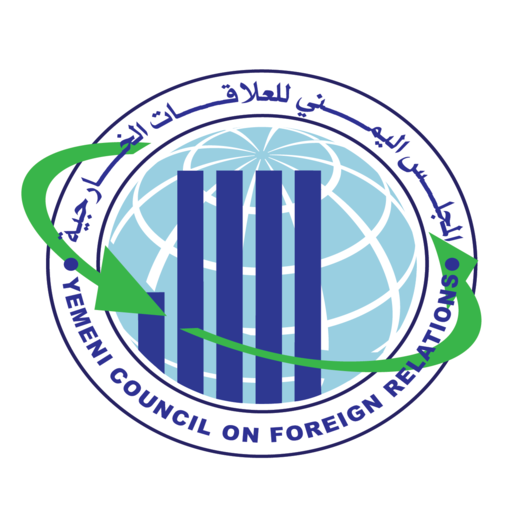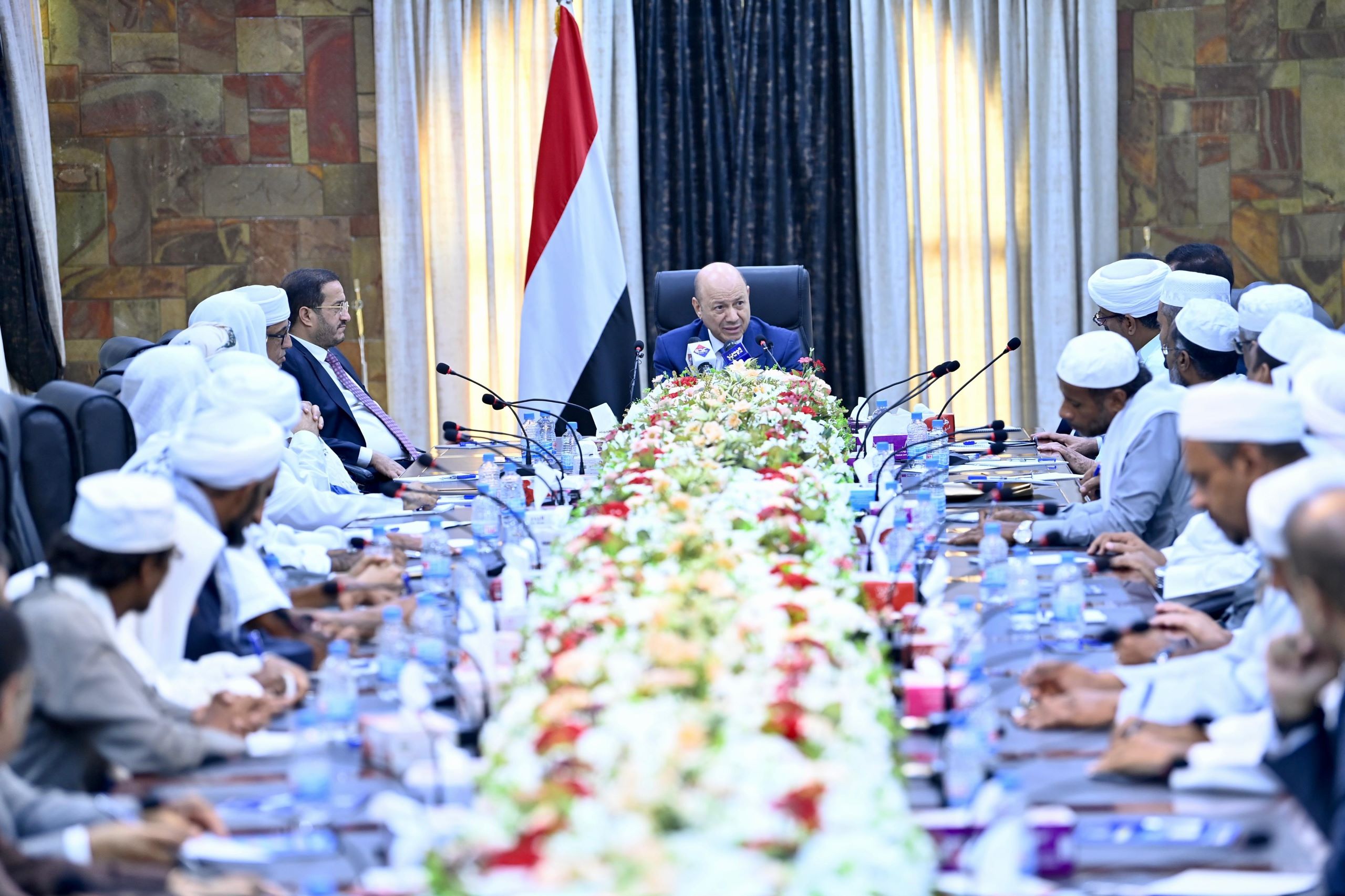Source: The official website of President Dr. Rashad Al-Alimi
His Excellency President Dr. Rashad Al-Alimi, President of the Presidential Leadership Council (PLC) along with Council member Othman Mujalli met, on Monday, at the Republican Palace in Al-Mukalla of Hadramout governorate, with the Revered religious scholars, Imams, preachers of mosques, and the Reconciliation Commission, in the presence of Mr. Mabkhout bin Madi, Governor of Hadhramaut.
The President of the Presidential Leadership Council welcomed the religious scholars to the meeting, which comes as part of his regular meetings with them, to ask for their opinions and listen to their advice.
His Excellency said, “In our last meeting, we listened to many of your problems and proposals. We hope that many of those obstacles have been removed, because Hadhramout is an example of self-reliance, innovating solutions, and addressing.”
He added, “We have been holding meetings with you not for compliments, but rather for responsible discussion about challenges and advice on what should be done to protect our security and promote our internal consensus.”
His Excellency the President stressed that religious scholars and preachers have a greater role to play beyond preaching and guidance, as they are thinkers, innovators, and social reformers at the same time. He stressed the importance of Hadhramout’s enlightening role, as it represents one of the most important hubs of knowledge and Islamic religious ideology for hundreds of years. Moreover, Hadhramout has numerous intellectual and jurisprudential schools from which we should learn and draw out of their heritage based on pluralism, diversity, and renewal.
President Al-Alimi highlighted the active role of religious scholars, preachers, and mosque Imams in protecting the youth and young people against extremism and terrorist ideas.
He noted that the PLC, the government, and all Yemenis are counting greatly on the role of religious scholars and Reconciliation Commission in strengthening and greatening home front to fight against the Iranian Imamate’s subversive project in the region.
The President of the Presidential Leadership Council urged the religious scholars to redouble their efforts in rejecting disunity, regardless of whether it is based on sectarian, tribal, or regional grounds, including the pre-Islamic tribalism as described by the Prophet (peace be upon him).
The president also emphatically stressed that it is very important to keep houses of Allah (Masjids) out of the political disputes. In addition, he affirmed people’s right to express their opinion and provide constructive criticism, as long as it is within the law and respects the national state institutions.
His Excellency the President warned against dealing with the rumors and misleading narratives of the Houthi militias, including their false claims regarding the decisions of the Central Bank and Yemenia Airways.
During the meeting, the PLC’s member, Sheikh Othman Mujli, spoke about the importance of strengthening Hadhramout’s position in the national equation and its political future.
Mujli warned against the systematic recruitment among the youth of Hadhramout and the liberated governorates in favor of the Iranian Houthi project. He also warned against taking the threats of returnees from the terrorist militias’s areas seriously.
The PLC’s member cited part of the Houthi militias’ grave violations of human rights and the international law, including bombing of houses and the indecent assault. Mujili stressed that the legitimate forces hold the responsibility of improving the situation of the liberated governorates at all levels.
During the meeting, the President of the Presidential Leadership Council, and the member of the Council, listened to the interventions of the religious scholars, who welcomed the presidential directives issued at the meeting.
The interventions focused on the role of both the state and preachers in strengthening cohesiveness, a moderate approach, and rejecting discrimination. In addition the interventions focused on the importance of keeping religious discourse away from any political disputes or bickering.
The religious scholars also touched upon the requirements for developing religious discourse and activating its role in strengthening law enforcement, combating corruption, extremism, fanaticism, and organized crime.

